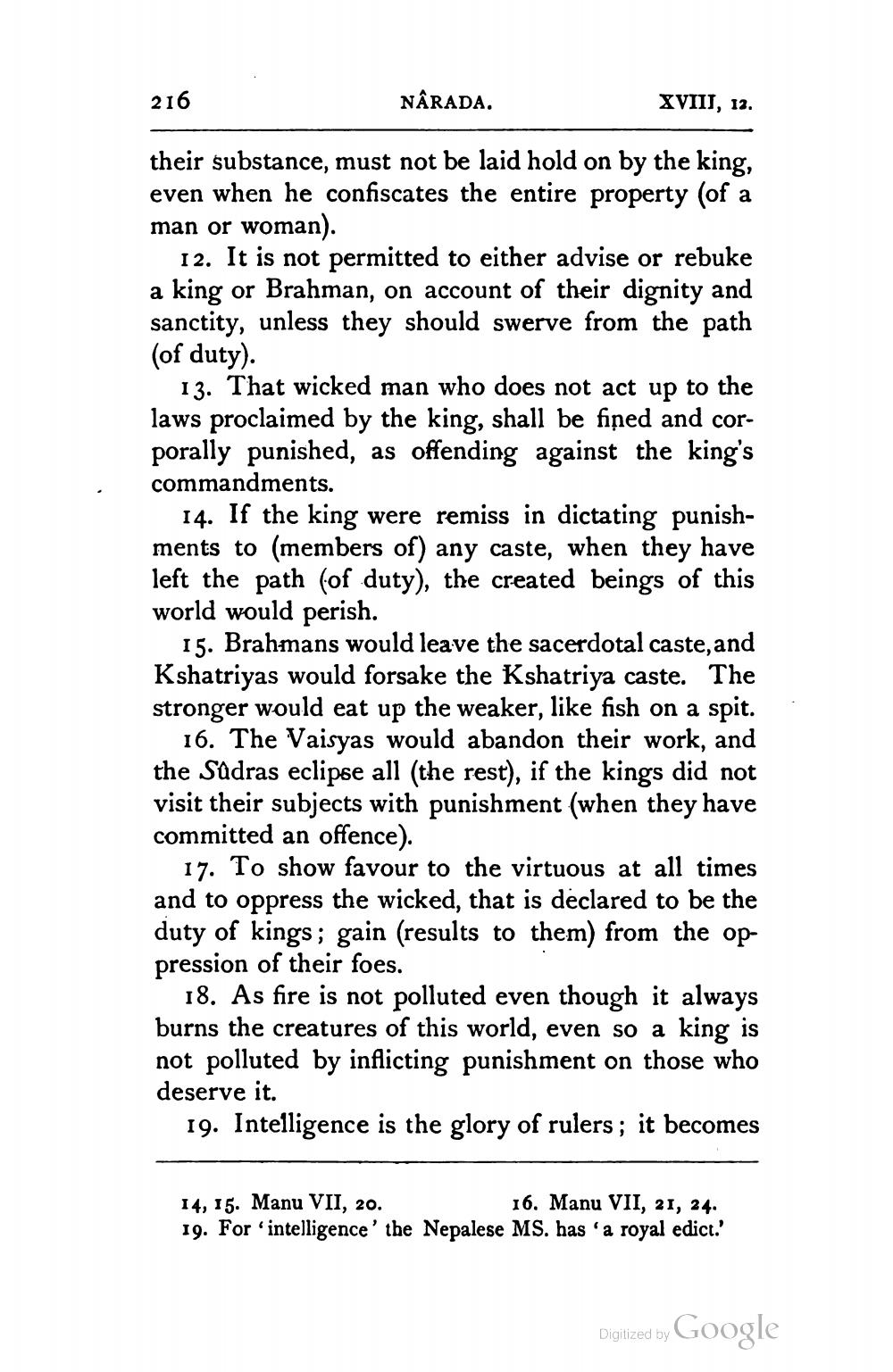________________
216
NARADA.
XVIII, 12.
their substance, must not be laid hold on by the king, even when he confiscates the entire property (of a man or woman).
12. It is not permitted to either advise or rebuke a king or Brahman, on account of their dignity and sanctity, unless they should swerve from the path (of duty).
13. That wicked man who does not act up to the laws proclaimed by the king, shall be fined and corporally punished, as offending against the king's commandments.
14. If the king were remiss in dictating punishments to (members of) any caste, when they have left the path (of duty), the created beings of this world would perish.
15. Brahmans would leave the sacerdotal caste, and Kshatriyas would forsake the Kshatriya caste. The stronger would eat up the weaker, like fish on a spit.
16. The Vaisyas would abandon their work, and the Sadras eclipse all (the rest), if the kings did not visit their subjects with punishment (when they have committed an offence).
17. To show favour to the virtuous at all times and to oppress the wicked, that is declared to be the duty of kings; gain (results to them) from the oppression of their foes.
18. As fire is not polluted even though it always burns the creatures of this world, even so a king is not polluted by inflicting punishment on those who deserve it.
19. Intelligence is the glory of rulers; it becomes
14, 15. Manu VII, 20.
16. Manu VII, 21, 24. 19. For 'intelligence' the Nepalese MS. has a royal edict.'
Digitized by Google




